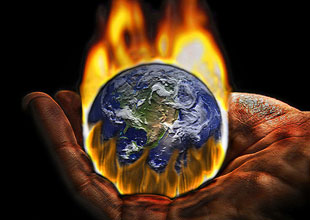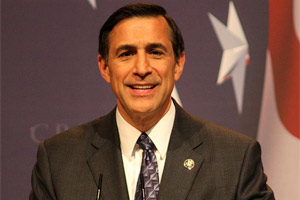Is all the mounting evidence that humans are warming the planet only making us less likely to take action? That’s the conclusion of a new study by two University of California-Berkeley researchers, “Apocalypse Soon? Dire Messages Reduce Belief in Global Warming by Contradicting Just World Views.”
While the majority of Americans understand that the planet is warming, and about half believe that this is caused by human activity, that number has actually declined in the past few years. The researchers posit:
One possible explanation for this pattern is that information about the potentially dire consequences of global warming threatens deeply held beliefs that the world is just, orderly, and stable. Individuals overcome this threat by denying or discounting the existence of global warming, ultimately resulting in decreased willingness to counteract climate change.
Basically, Americans really, really believe that the world is a generally good, fair place; therefore, bad things like climate change don’t happen to good people. Many people, they write, believe “that future rewards await those who judiciously strive for them, and punishments are meted out to those who deserve them”—and this doesn’t jive with the looming threat of climate change in their mind, which causes them to reject it as a reality. They suggest that this could be more of a problem in the US than in other countries, as we tend to reflect these just world beliefs more strongly.
The researchers, Matthew Feinberg and Robb Willer, suggest that because most appeals for action on climate emphasize the potentially catastrophic consequences, this could only be making the problem worse. They conclude that “less dire messaging could be more effective for promoting public understanding of climate change research.” Discussion of the positive outcomes—things like new energy technologies—goes further toward making folks less skeptical of climate change.
Read the whole study here.














